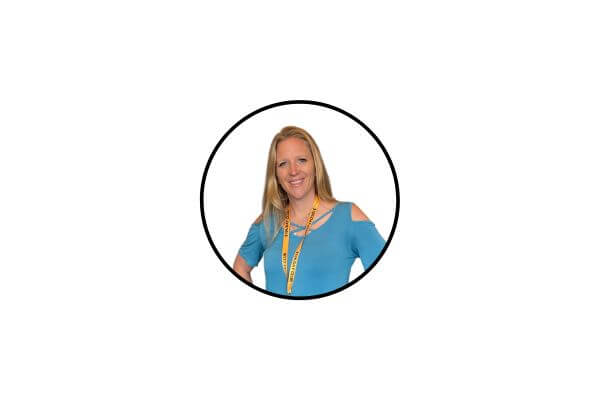How Much House Can I Afford With 100K Salary? Top Considerations
Inside: This guide will teach you about the different factors you need to consider when purchasing a home with a 100k salary.
Making the decision to buy a house is a huge financial step.
If you’re like most people, you probably have a lot of questions about how much house you can afford with your 100k a year salary.
Your situation will be different than the person next-door or your co-worker.
It’s enough to comfortably afford most homes, and gives you plenty of room to save money each month.
But how much house can you actually afford?
It depends on several factors, including your down payment, interest rate, income, and credit score.
In this ultimate guide, we’ll walk you through everything you need to know about how much house you can afford making 100000 a year.

how much house can i afford on 100k
In general, you can expect to spend 28-36% of your income on housing.
Generally speaking, if you make $100000 a year, you can afford a house between $350,000 and $500,000.
What is the maximum house I can afford with a salary of $100K?

While you want to know the maximum house you can afford when making that start of six figures, it may not be the best of ideas.
The goal is not to stretch yourself so thin you are sleep deprived because you are worried about your finances.
Yet, the maximum house you can afford when making $100000 is $650,000.
What mortgage can you afford with 100K salary?

In general, you should expect to spend no more than 28% of your monthly income on a mortgage payment.
Thus, you can spend approximately $2333-3000 a month on a mortgage.
Just remember that the interest rate, term length of the loan, down payment, and other factors will all affect how much you pay in total.
This post may contain affiliate links, which helps us to continue providing relevant content and we receive a small commission at no cost to you. As an Amazon Associate, I earn from qualifying purchases. Please read the full disclosure here.
Ready to buy a new home or refinance your mortgage?
eMortgage® shops home loans across multiple lenders to help you find a mortgage rate that fits your needs.
Picture of a likely house you can afford on 100k
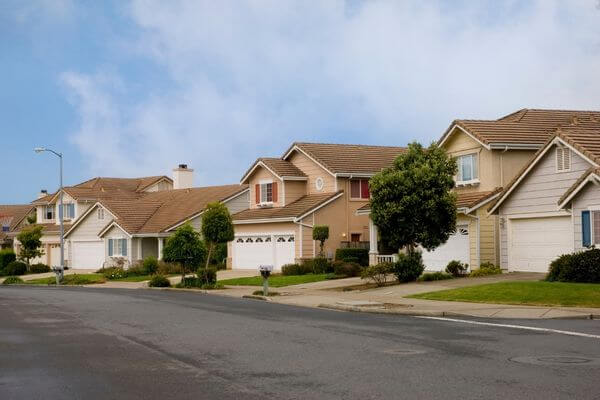
This is a picture of a suburban house you could afford on 100k in a major city.
The house is located in the suburbs and has three bedrooms, two bathrooms, and a two-car garage. The house is well-maintained and has a nice backyard with a deck.
28/36 Rule

But there’s one factor that trumps all the others: The 28/36 rule.
Also known as the debt-to-income (DTI) ratio.
The 28/36 rule is a guideline that says that your housing costs (mortgage payments, property taxes, homeowners insurance, and HOA fees) should not exceed 28% of your gross monthly income. And your total debt (housing costs plus any other debts you have, like car payments or credit card bills) should not exceed 36% of your gross monthly income.
If you follow the 28/36 rule, you’ll be on solid footing when it comes to buying a house that you can afford now and in the future.
How to calculate how much mortgage on 100k salary you can afford?

If you’re like most people, you probably don’t know how to calculate your monthly mortgage payment.
This is actually a really important answer that you need to ask yourself before buying a home.
The answer will help determine the price range of homes you should be looking at as well as how much money you’ll need to save up for a down payment.
Step #1: Check Interest Rates
When looking to purchase a home, it is important to research current mortgage rates so you have an accurate estimate of what you can afford. You can also check your credit score and search for average mortgage rates based on your credit score.
Right now, with sky-high inflation, interest rates are hovering around 6%. This means that if you had a $450,000 loan at 6% interest, the monthly payment would be $$2,520. However, if interest rates dropped below 6%, your monthly payments would go down accordingly.
Step #2: Use a Mortgage Calculator

Use a mortgage calculator to get an estimate of the home price you can afford based on your income, debt profile, and down payment,
This will let you know what house size and type may be available that fits within your budget.
Additionally, the housing expense ratio (which is also called the “front-end” or “housing expense” ratio) cannot exceed 28% of gross monthly income and the total debt-to-income ratio (also called “back-end”) cannot exceed 36%. To get started with a mortgage calculator, enter some basic information about yourself below.
Depending on your individual situation, the mortgage calculator will allow you to understand a ballpark range of what size of the home price you can afford.
Step #3: Taxes, Insurance, and PMI
When planning for a home purchase, it’s important to factor in all of your monthly expenses, including taxes, insurance, and PMI.
This will ensure that you get an accurate estimate of your home-buying budget and how much house you can afford based on your household income and debts.
Make sure you include these payments to get a realistic understanding of your monthly budget.
Step #4: Remember your Living Expenses

When considering how much house you can afford based on your $100,000 salary, it is important to consider your lifestyle and current expenses.
More than likely, you will be approved for a higher mortgage amount than what feels comfortable to you. This is 100% normal with lenders pushing for the biggest mortgage.
They want to provide you with the most you can afford – not what you should afford.
Step #5: Get prequalified
Prequalifying for a mortgage is an important first step to take when estimating how much house you can afford.
It gives you a more accurate estimate of your personal situation and helps make informed decisions – since it’s based on information about your unique income and debt information.
Remember that your final amount will vary depending on variables like interest rates, which are determined by credit scores and the overall market. Making time to research current mortgage rates and improve your credit score can help secure a better rate, giving you more purchasing power.
Home Buying by Down Payment Rule of Thumb
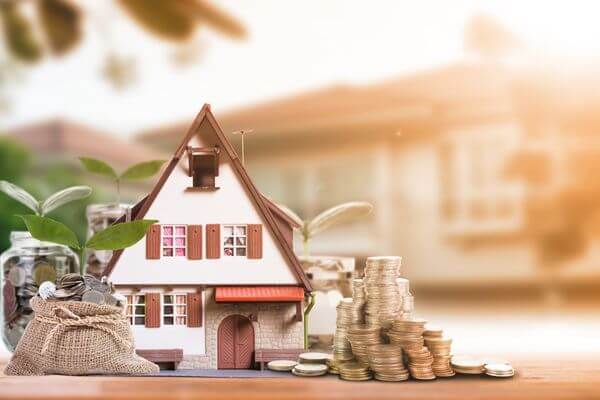
How much house can you afford?
This is a common question among home buyers – especially first-time home buyers. Use this table to figure out how much house you can afford given your salary and other monthly obligations.
The assumption is 30 year fixed mortgage, good credit (690-719), no monthly debt, and a 4% interest rate.
| Annual Income | Downpayment | Monthly Payment | How Much House Can I Afford? |
|---|---|---|---|
| $100,000 | $13,807 (3%) | $2,500 | $460,245 |
| $100,000 | $23,437 (5%) | $2,500 | $468,745 |
| $100,000 | $49,132 (10%) | $2,500 | $491,325 |
| $100,000 | $77,415 (15%) | $2,500 | $516,100 |
| $100,000 | $108,713 (20%) | $2,500 | $543,569 |
| $100,000 | $143,600 (25%) | $2,500 | $574,400 |
Mortgage on 100k Salary Based on Monthly Payment and Interest Rate

How much house can you afford on a $100,000 salary?
This largely depends on the current interest rate of the mortgage loan you’re considering. When interest rates are high, people aren’t actively buying homes as when interest rates are low.
By understanding these factors, you can better gauge whether purchasing a home is a feasible option on your $100,000 salary.
The assumption is 30 year fixed mortgage, good credit (690-719), no monthly debt, and a 20% downpayment.
| Annual Income | Monthly Payment | Interest Rate | How Much House Can I Afford? |
|---|---|---|---|
| $100,000 | $2,500 | 3.25% | $587,970 |
| $100,000 | $2,500 | 3.5% | $572,823 |
| $100,000 | $2,500 | 3.75% | $558,101 |
| $100,000 | $2,500 | 4% | $543,787 |
| $100,000 | $2,500 | 4.5% | $516,671 |
| $100,000 | $2,500 | 5% | $491,532 |
Home Affordability Calculator by Debt-to-Income Ratio
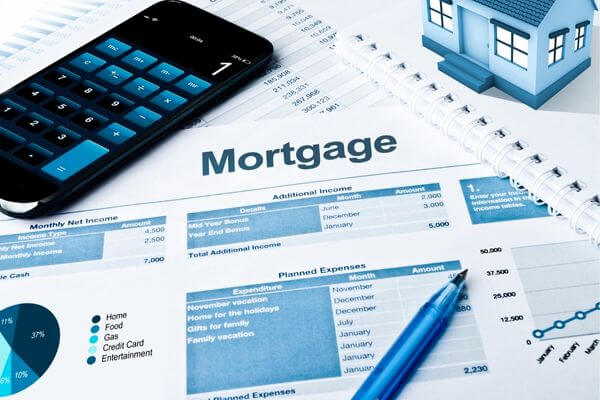
Around here at Money Bliss, we always stress that debt will hold you back.
In the case of buying a house, debt can increase your debt-to-income ratio (DTI).
Here is a glimpse at what monthly debt payments can cause your DTI to increase and the house you want to buy to be more difficult.
| Annual Income | Monthly Payment | Monthly Debt | How Much House Can I Afford? |
|---|---|---|---|
| $100,000 | $3,000 | $0 | $649,337 |
| $100,000 | $2,800 | $200 | $604,837 |
| $100,000 | $2,700 | $300 | $582,586 |
| $100,000 | $2,500 | $500 | $538,086 |
| $100,000 | $2,250 | $750 | $482,460 |
| $100,000 | $2,000 | $1000 | $426,834 |
Increase your Home Buying Budget
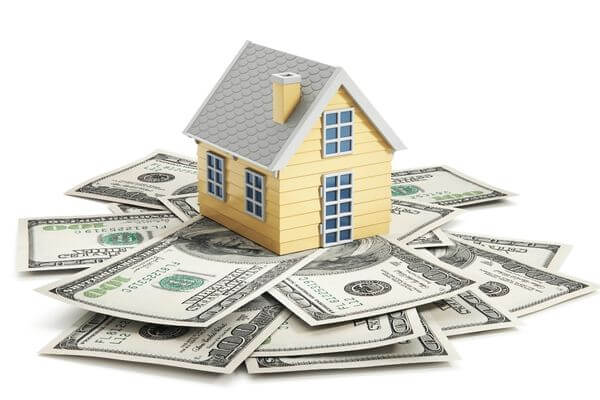
There are a few ways you can increase your home buying budget if you are looking to buy a house on a $100k annual income.
By following these steps, you can find a more suitable home for your income and save money on your home buying budget.
1. Pick a Cheaper Home
Home prices vary significantly in different parts of the country. Moving out of a major metropolitan area or an area with notoriously high housing costs can help you find more affordable homes.
There are plenty of ways to find a home that is cheaper than you would normally expect.
- Look for homes that are for sale in less desirable neighborhoods.
- Find homes that are for sale by owner or have not been listed yet.
- Check for homes that are for sale outside of your usual price range and haven’t sold as they may drop their price.
- Move to a lower cost of living area.
2. Increase Your Down Payment Savings
A larger down payment can reduce the amount you have to finance, which lowers your monthly payment. A larger down payment can also help you get a lower interest rate and avoid paying PMI.
Putting down at least 10-20 percent of the home sale price can help boost your home buying power. You can also take advantage of down payment assistance programs in your area.
3. Pay Down Your Existing Debt

Paying down your debts such as credit card debts or auto loans can help raise your maximum home loan.
Paying down your debts can help you qualify for a higher loan amount.
This is because when you have lower amounts of debt, your credit score is higher and your debt-to-income ratio is less. This means you are less likely to be rejected for a home loan.
4. Improve Your Credit Score
A higher credit score can lead to lower rates and more affordable payments.
You can improve your credit score by paying your bills on time, paying down your balances, avoiding opening new credit right before applying for a mortgage, and disputing any errors on your credit report.
This is very true! We had an unfortunate debt that wasn’t ours added to our credit report right before closing. While the debt was an error, it still cost us a higher interest rate and forced us to refinance once the credit report was fixed.
5. Increase Your Income
Asking for a raise, seeking a higher-paid position, or starting a side gig can help you increase the amount of home you can afford.
While you need two years of income from a side gig or your own online business to count as income, the extra cash earned helps you to increase the size of your downpayment. Plus it lowers your debt-to-inc
Factors to Consider with Financing Options on a Mortgage

How much house can you afford on your current salary, combined with monthly debts?
This is a question that we are often asked, and it’s one that we love to answer.
Here are all the different factors that go into this decision so that you can make an informed housing choice.
1. Mortgage Loan Amount
If you make a salary of $100K a year, it is important to consider how much of that income you can use for a mortgage.
When looking at the cost of a mortgage, you should consider the principal, interest, taxes, insurance, and any homeowners association fees as your total payment owed.
The principal is the amount that you borrow to purchase the home and is paid off over the life of the loan while the interest is the percentage you pay to the mortgage lender in exchange for lending you the money.
With a 15-year fixed-rate loan, your monthly payments will be higher, but you will end up paying less in interest over the life of the loan than with a 30-year fixed-rate loan.
If you have no outstanding debt, a 20% down payment, a high credit score, and a 3.5% interest rate from an FHA loan, you could be able to afford up to ???.
However, if you have debt, a smaller down payment, or a lower credit score, the loan amount you can qualify for will be lower.
2. Mortgage Interest rate
Mortgage interest rates will significantly impact the cost of a mortgage. The higher the interest rate, the more expensive the loan will be and the less you can borrow.
For example, if you had a $450,000 mortgage, the difference between a 3% and 4% interest rate is more than $201 per month.
Remember, in the first few years of your mortgage, most of your monthly payments go towards paying off interest – not principal!
3. Type of Mortgage
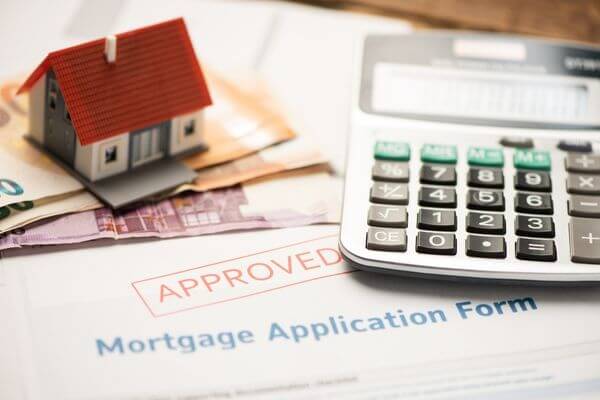
The primary difference between a fixed and variable mortgage is the interest rate and the amount of your payment
- Fixed-rate mortgages offer the stability of having the same interest rate for the life of the loan.
- Adjustable-rate mortgages (ARMs) come with lower interest rates to start, but those rates can change over the life of the loan. ARMs are often a riskier choice, as if the economy falters, the interest rate can go up.
Fixed-rate loans are typically the most popular choice, as the monthly payment amount is more predictable and easier to budget for. The terms of a fixed-rate loan can range from 10 to 30 years, depending on the lender.
Adjustable-rate mortgages (ARMs) have interest rates that can increase or decrease annually based on an index plus a margin. ARMs are typically more attractive to borrowers who plan on staying in the home for a shorter period of time, as the lower initial interest rate can make the payments more manageable.
The Money Bliss recommendation is to choose a 15-year fixed-rate mortgage.
4. Property Value
Property value can affect your ability to afford a mortgage.
As the value of the property increases, so does the amount of money you can borrow to purchase it. This, in turn, affects how much interest you will pay over the life of the loan.
This is especially important as many people have been priced out of the market with the rising home prices.
Additionally, higher property values can mean higher taxes, which will add to the amount you need to budget for your mortgage payments.
5. Homeowners Insurance

The cost of homeowners insurance will depend on where you live, the size of your home, and other factors.
Homeowner’s insurance is a requirement when securing a mortgage loan and will have requirements on the amount of coverage needed and the type needed.
Additionally, areas or locations prone to natural disasters or are located in densely populated areas may have higher premiums than other locations and may require additional insurance like flood insurance.
This is something you do not want to skimp on as the cost to replace a home is very expensive.
6. Property Taxes
Property taxes are based on the tax rate for where you live and the value of your home.
For example, if the value of your home is $450,000 and your local tax rate is 1.2%, your property taxes would be $5,400 annually.
The higher the property taxes, the more you will have to pay in your monthly mortgage payment.
7. Home Maintenance And Home repair costs

This is the joy of homeownership when you get to repair, overhaul, or replace items such as the roof or furnace. Even a kitchen remodel is quite pricey.
Beyond the cost of purchasing a home, homeowners are likely to have other expenses related to owning and maintaining their property.
Plus many homeowners prefer to do significant upgrades to the home before moving in, which comes at an additional expense.
Additionally, it’s advisable to buy a home that falls in the middle of your price range to ensure you have some extra money for unexpected costs, such as repairs and maintenance.
It’s important to factor in the cost of furniture and appliances when budgeting for your new home. Make sure to compare prices and shop around for the best deals to ensure you’re getting the most bang for your buck!
8. Homeowners Association Maintenance or HOA Fees
The purpose of a homeowners association (HOA) is to establish a set of rules and regulations for residents to follow as well as maintain the community or building.
These fees are typically used to pay for maintenance, amenities, landscaping, and concierge services.
These HOA fees cover community upkeep, including landscaping and joint space development, and can range from $100 to over $1,000 per month, depending on the amenities in the association.
9. Heating and Energy Bills

Make sure to consider your heating and energy bills when setting your budget, as these are unique expenses that can fluctuate from home to home.
- The larger the home, the higher the costs to heat and cool your new home.
- The smaller the home (or townhome with shared walls), the lower the costs to heat and cool your new home.
Make sure to ask your realtor for previous utility bills on the property you are interested in. This will help ensure that the property is comfortable and meets your needs.
10. Private Mortgage Insurance
The purpose of private mortgage insurance (PMI) is to protect the lender in the event of foreclosure. It is typically required when a borrower is unable to make a 20% down payment on a home purchase.
PMI allows borrowers to purchase a home with less upfront capital, but additional insurance costs that are added to the mortgage payment. These fees range from 0.5% to 1.8% of the loan’s value annually and are based on the amount of money put down.
PMI can also be canceled or refinanced once the borrower has achieved 20% equity in the home or when the outstanding loan amount reaches 80% of the home’s purchase price.
The best places to live with a 100K salary –
– Memphis, Tennessee
– El Paso, Texas
– Detroit, Michigan
– Cleveland, Ohio
– Tulsa, Oklahoma
– San Antonio, Texas
– Jacksonville, Florida
– Louisville, Kentucky
– Houston, Texas
– Las Vegas, Nevada
– Nashville, Tennessee
– Dallas, Texas
(Source Top 10 U.S. cities where a $100k salary stretches the best)
Ready to buy a new home or refinance your mortgage?
eMortgage® shops home loans across multiple lenders to help you find a mortgage rate that fits your needs.
FAQ
What House Can I Afford on 100k a year?
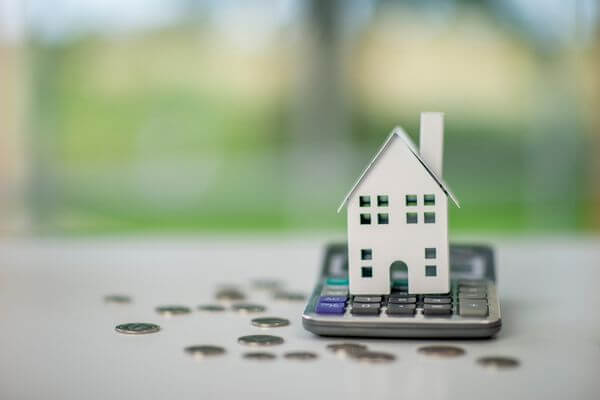
When trying to decide what house you can afford with a salary of $100K, there are many factors to consider.
Generally speaking, with a salary of $100K, you can afford a house worth anywhere between $350,000 and $600,000.
This will depend on your credit score, debt-to-income ratio, the size of your down payment, and other expenses you may have.
On top of that, you’ll also want to consider how much you’re comfortable with spending on your monthly mortgage payments.
All of these factors vary from person to person, so the maximum house you can afford with a salary of $100K will depend on your unique financial situation.
This is your first step to learning how to FI.
Did the post resonate with you?
More importantly, did I answer the questions you have about this topic? Let me know in the comments if I can help in some other way!
Your comments are not just welcomed; they’re an integral part of our community. Let’s continue the conversation and explore how these ideas align with your journey towards Money Bliss.



